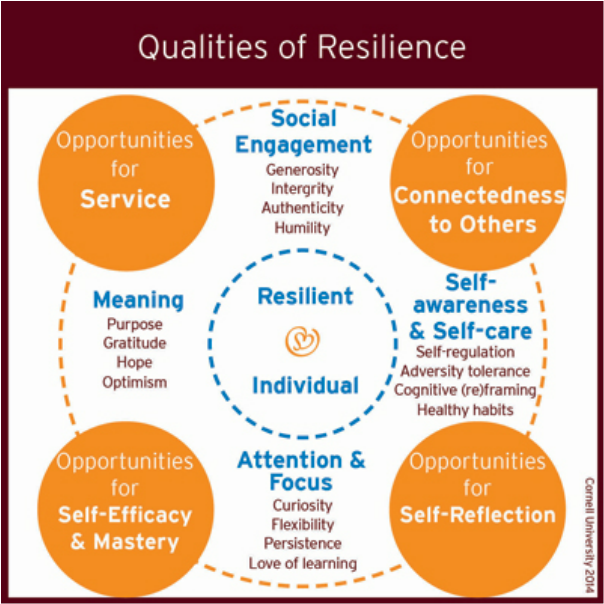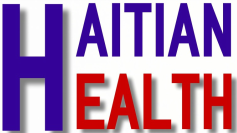 According to a recently published study, some Haitians have been experiencing the lack of access to quality mental and medical care, affordable housing, opportunities to earn decent wages, and the anguish associated with their undocumented statuses in the U.S. [1]. In spite of these hardships, they have been able to survive, due to their extraordinary resilience. Resilience, a term used to describe the capacity of individuals to adapt to stressful and perilous circumstances, and consequently become more empowered, was never measured in Haitians using a reliable and valid questionnaire in Creole, until recently. Following the 2010 earthquake, Cénat et al. (2015) helped develop a Creole version of the Resilience Scale (RS) [2]. The scale was administered to 1355 adults between the ages of 18 and 89 who were residing at the time of the earthquake in one of the following six municipalities in the Haitian capital: Port-au-Prince downtown, Carrefour, Delmas, Tabarre, Pétion-Ville, and Cité Soleil.
The collected data were entered into SPSS. A special test (Cronbach’s alpha test) was used to examine how error-free, the Creole version of the questions on this questionnaire were, in determining the level of resilience among the Haitians participating in the study. The results of this test demonstrated that the English version of the questions on the resilience scale were reliably translated following minor modifications, thus the Creole version of the Resilience Scale was deemed valid. Additionally, the French version of the Social Support Questionnaire Scale (SSQ-6) and the Beck Depression Inventory (BDI-II) were administered to these Haitians in the study and analyzed for reliability. The Social Support Questionnaire Scale (SSQ-6) was adequate in measuring their “perceived availability of support” and “level of satisfaction” with the said support [2]. The Beck Depression Inventory (BDI-II) also assessed very well the level of depression in the study participants. Thereafter, the scientists compared the data from the Resilience Scale (RS) with the Beck Depression Inventory (BDI-II). There was a strong association. In other terms, the more a Haitian was found to be resilient, based on the Resilient Scale (RS), the less likely he or she was depressed, showing symptoms of depression on the Beck Depression Inventory (BDI-I). A Haitian with a higher level of resilience was more likely to document having the impression of a high and adequate level of support. Compared to the Social Support Questionnaire Scale (SSQ-6) and the Beck Depression Inventory (BDI-II), there was no relationship between the levels of resilience in the study participants with their “high prevalence of PTSD symptoms”, as demonstrated on the French version of the Impact Event Scale Revised (IES-R) [2]. There were some limitations to this study such as the use of the French version of the scales for comparative analysis with the Resilience Scale (RS). Re-administering the Resilience Scale (RS) some years later to these same participants for a Test-Retest analysis could probably increase the reliability of this measure. Nevertheless, the authors determined that the Creole version of the Resilience Scale (RS) was a good instrument to measure the level of resilience among adult Haitians compared with adults in other studies, except in one, and to the children and adolescents assessed for resilience who were also victims of the 2010 earthquake in Haiti. References 1. Allen, J. D., Leyva, B., Hilaire, D. M., Reich, A. J., and Martinez, L. S. 2015. “Priorities, concerns and unmet needs among Haitians in Boston after the 2010 earthquake.” Health & Social Care in the Community 1-12. doi: 10.1111/hsc.12217 2. Cénat, J. M., Derivois, D., Hébert, M., Eid, P., & Mouchenik, Y. (2015). Psychometric properties of the Haitian Creole version of the Resilience Scale with a sample of adult survivors of the 2010 earthquake. Comprehensive Psychiatry, 63, 96-104. doi: 10.1016/j.comppsych.2015.09.002
0 Comments
Leave a Reply. |
Mickelder Kercy, M.D. M.S.I learned about the art and science of medicine and was introduced to the community and population-based aspects of public health at the Université Notre Dame d'Haiti. My early practical interventions in the field of public health during medical residency in Haiti fostered my interest in pursuing additional academic training in public health. At Columbia University in the City of New York, I specialized in Public Health with a minor focus on Community Health Education. My special interest is in non-communicable chronic diseases, and the social-ecological approach to health education and promotion in secular and faith-based communities. Archives
October 2017
Categories
All
To subscribe to our blog and receive notifications of new posts by email
|


 RSS Feed
RSS Feed
